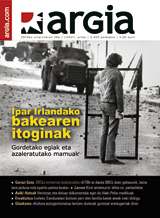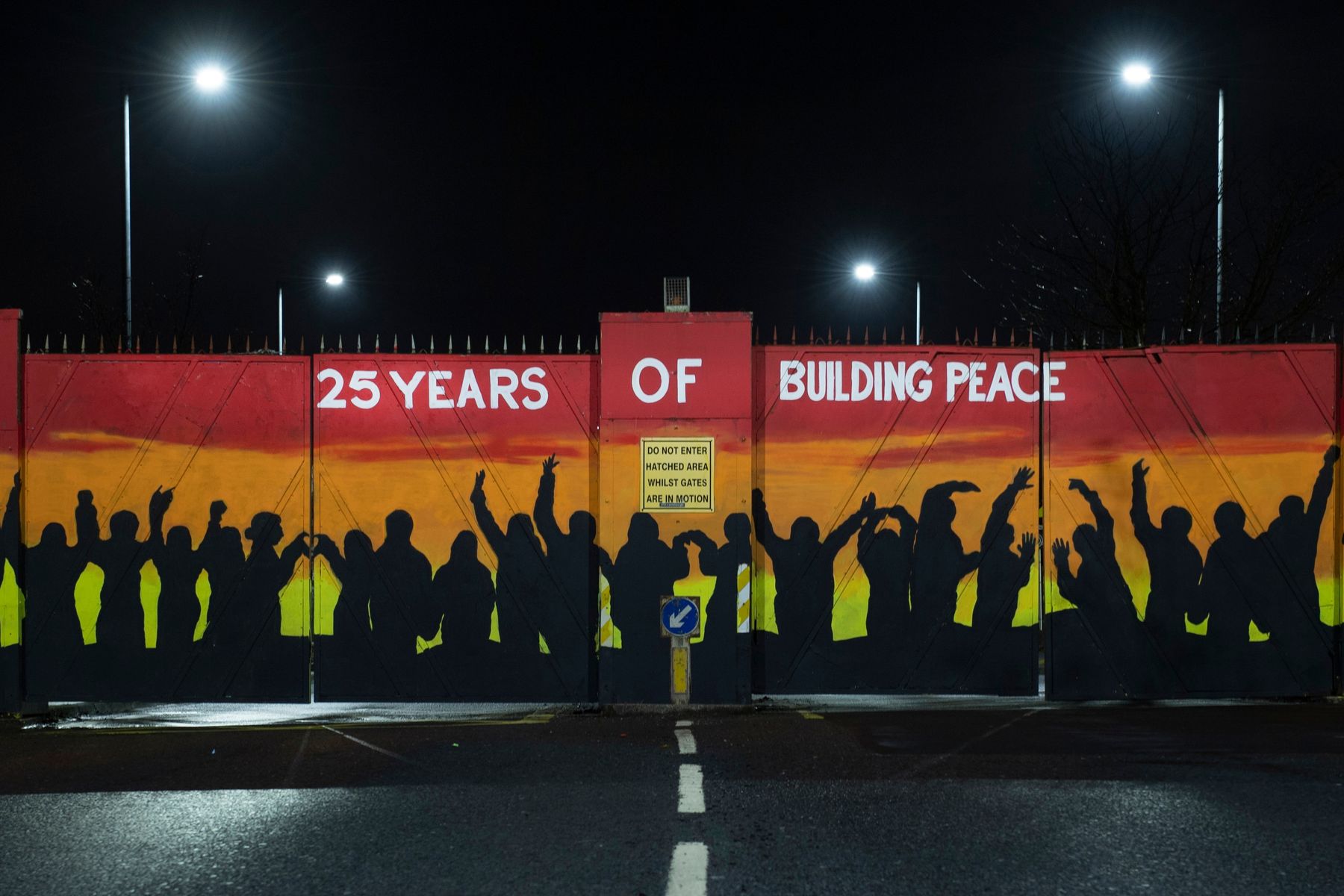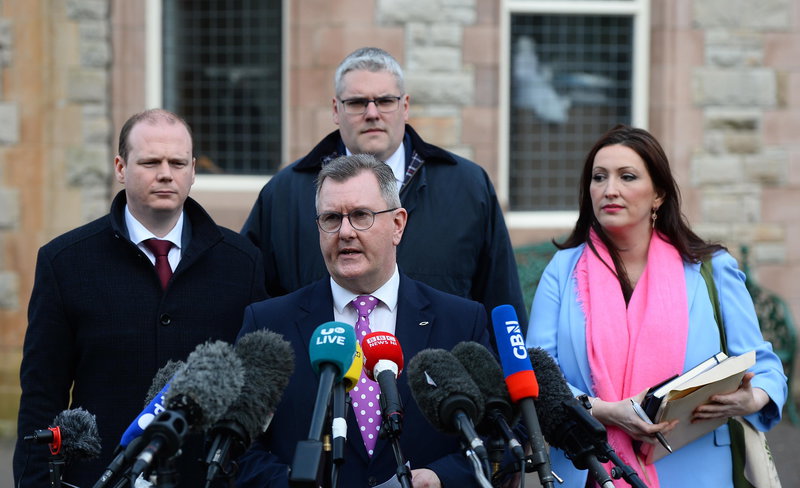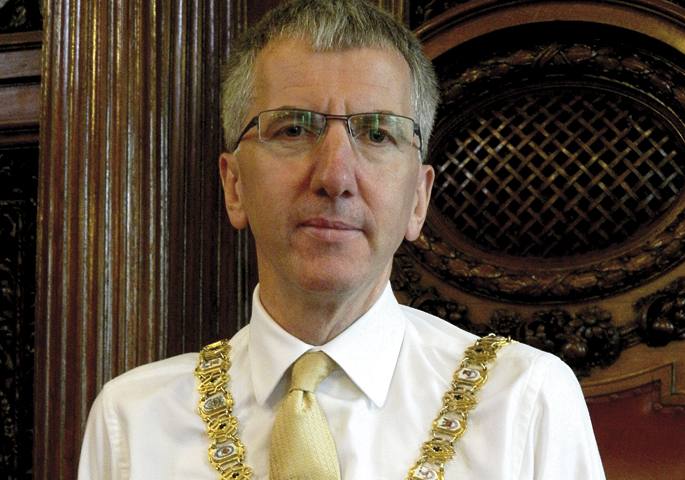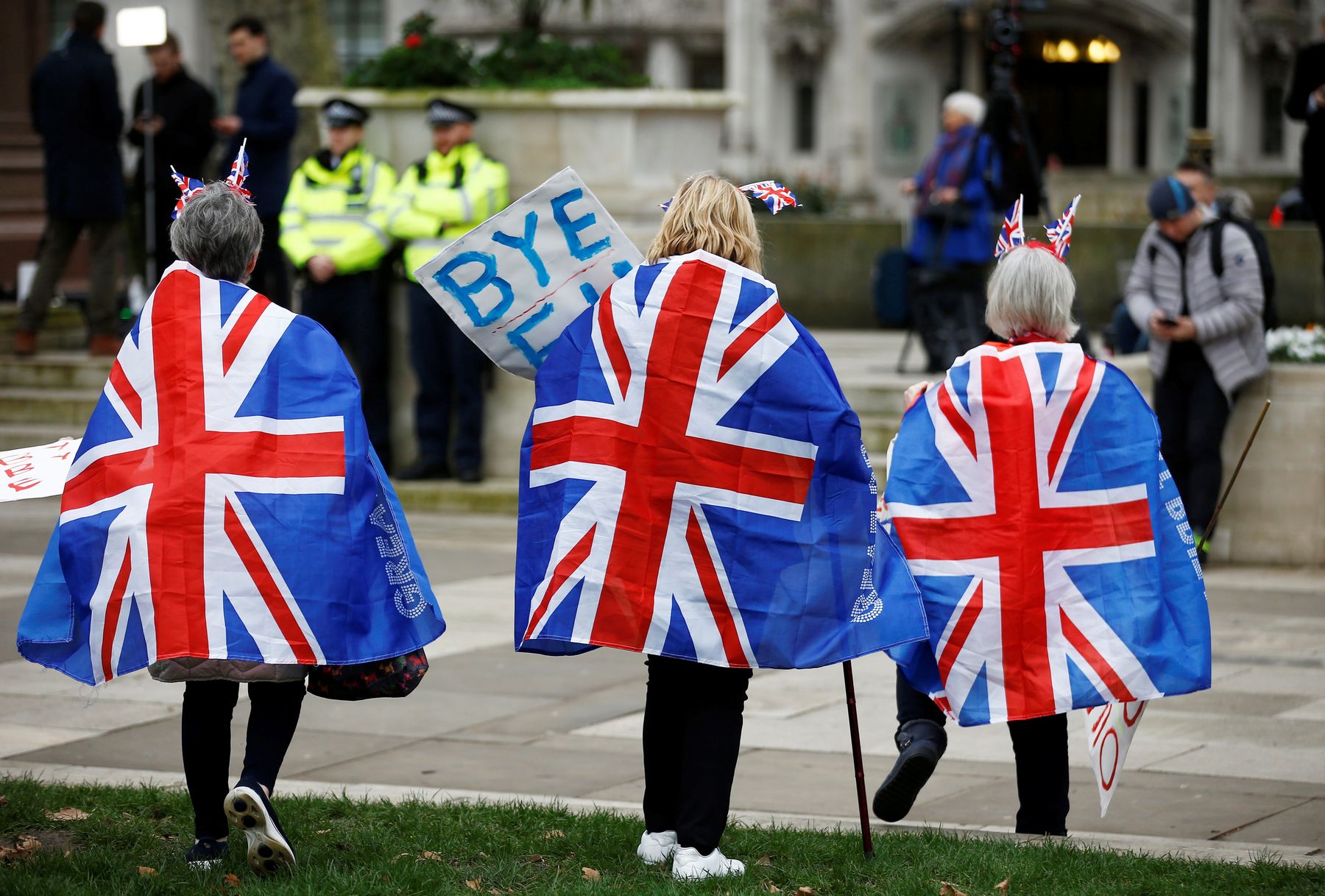"For us, what matters is truth, formal justice for the state."
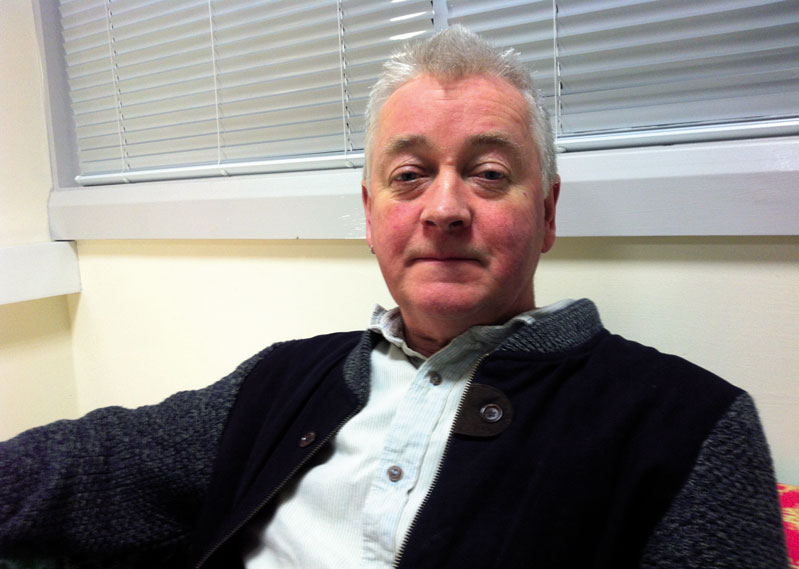
Pat Finucane Center (PFC) is a non-governmental organization dedicated to the recovery of human rights and truth, where Paul O’Connor has been working since 1992. The partnership is supported by money from the European Union and the Irish Government. Pat Finucane, a Belfast lawyer killed by loialists in 1989, is investigating, inter alia, the circumstances surrounding more than 200 deaths – mostly Catholics – in 35 years in the conflict in Northern Ireland. The investigative work begins when the families of the deceased are directed to them, which is carried out on their own and, above all, following the work of the Northern Ireland Police Historical Investigation Group (HET).
Truth and justice. Both concepts compete in the study of the past of a conflict.
Many Republican and nationalist families expect nothing from justice, have no confidence and are realistic. Many families of the loialists, especially the families of the deceased from the security forces, continue to speak of justice, because they believe that what the state did is good and that the State still has to give them an adequate response. If the IRA killed someone 30 years ago, and that's researched, it has to be very careful, with tests, with DNA... but, for example, when a soldier has killed someone for a rubber ball thrown at a distance of six meters, that's not understood as "shooting."
Formal justice may be important for the state, but for us the most important thing is the truth, to know how far the British State has been in this conflict, which has not been a conflict between Catholics and Protestants.
There has been no agreement in the Haass talks. Do you think it will finally be possible to set up an independent commission to investigate the past, as is the case with Sinn Féin?
I don't know, but we also have to be careful. The British State will never open its archives completely, nor will anger. However, we constantly reviewed the files and managed to open new processes, which is very positive for families. But, of course, that is the tip of the iceberg, and many things we will never know. That is why the CSP policy is very pragmatic. Many of the parents of the deceased are dying, what do we have to tell them, 30 years of waiting until an independent commission is set up and it results?
Not all families have the same idea as justice. Some want to see soldiers in jail – it won’t happen – and others just want the truth, because that gives them peace of mind. Most of those killed by the army were innocent, but said they were terrorists or their accomplices; families want the innocence of the British States to be recognised.
Of course, if you want the soldiers who killed someone to go to jail, you also have to accept that the IRA members who killed someone go back to jail. In the peace process do we evict prisons and are we now beginning to fill them?
It is said that of the 3,600 deaths, most cases have not yet been investigated or prosecuted. It is said that the TTM devoted to your research will disappear. His work has been very much in doubt. You have worked very hard with them. What do you think?
The HET is likely to disappear. This process has been mainly British, and that has been the biggest problem. Their work has been very much discussed and they have often been very superficial, so our job has been to encourage them to do research. Some TTM groups have done a good job, others have not. For example, in the book Lethal Allies, we have found evidence between the army and the security forces and the loialist paramilitary groups, and these have been obtained thanks to the HET, very powerful tests. But in general, the TTM needs continuity from those who know the laws and procedures well. That is why we have been very critical when the TTM has investigated the victims of families in distress, since in most cases these processes have gone bankrupt. For example, the CSP has never accepted the first report submitted by the TTM.
The evidence of complicity between the British State and the loilist paramilitaries is very clear in the 120 cases studied in the book. And now, what's going to happen?
It is easy for the government to rule out the CFP, but for some judges to say something, or to say it in Parliament… That is more difficult for them to avoid. Now we have to get someone to do something in the area of justice with our work. We have recently been with representatives of the State and told them: “There are very concrete tests of 120 deaths, what are they going to do with the book?” And they don't know what to do.
The commission that investigated the Bloody Sunday case had three judges and they said, “Yes, the army killed innocent people,” which made it easier for David Cameron to say, “I’m sorry.”
Of the 15 cases disappeared by the IRA, eight of them have not yet been clarified. Why is it? Because the IRA doesn't give information, because it's been a long time and the information is forgotten or lost...?
According to the committee investigating these killings, the IRA has helped to find those who have been found, but in some cases the people involved are dead, or cannot be remembered, or do not agree with the peace process, or want to harm Sinn Féin… But the criticism now is not against the IRA, but against people who can have information. In any case, the limited immunity system works, and that is why several disappearances have appeared.
What is limited immunity based on?
When the family of the deceased authorizes the entry into force of a limited immunity, if someone declares that he has participated in something, that cannot be used against him in the prosecution.
In Euskal Herria, the theme of the story of the past has become very important. What has been agreed here about the past?
The reports are several, not only there are reports. Some of the loialists, for example, reject the repression that has taken place here and its consequences, the terror that caused here for years; in Northern Belfast, for example, 600 people were killed. For them they were no more than Catholics.
And our nationalist community, Republican, still doesn't really understand the damage that the IRA did, they were done in a war, and it's over. The IRA killed almost a thousand soldiers and policemen. This is a fight that has resulted in the deaths of over 600 people. All of that we have to talk about as well.
The Treaty of Good Friday of Northern Ireland, which has become a world benchmark in the resolution of armed conflicts, has reached a quarter century. The 1998 agreement was aimed primarily at ending violence. Violence has been greatly reduced, but it does not disappear. For... [+]
Belfasteko alkatea da iragan ekainaren 3tik. Sinn Feineko alkatea. Ez da alderdi horretako lehena baina, alderdi unionisten hainbeste urtetako nagusitasunaren ondoren, oraindik ere berezia egiten da. Datorren urteko ekainera arte izango da alkate. Bere leloa:... [+]
Europako Batasuna 1993an sortu zenetik kide berriak gehitu dira bata bestearen atzetik. Joan den ostiralera arte 28 estatuk osatu dute makro-egitura politiko eta ekonomiko hori. Izan ere, urtarrilaren 31 historiara pasako da, EBk izan duen lehen zatiketaren eguna izan delako... [+]









